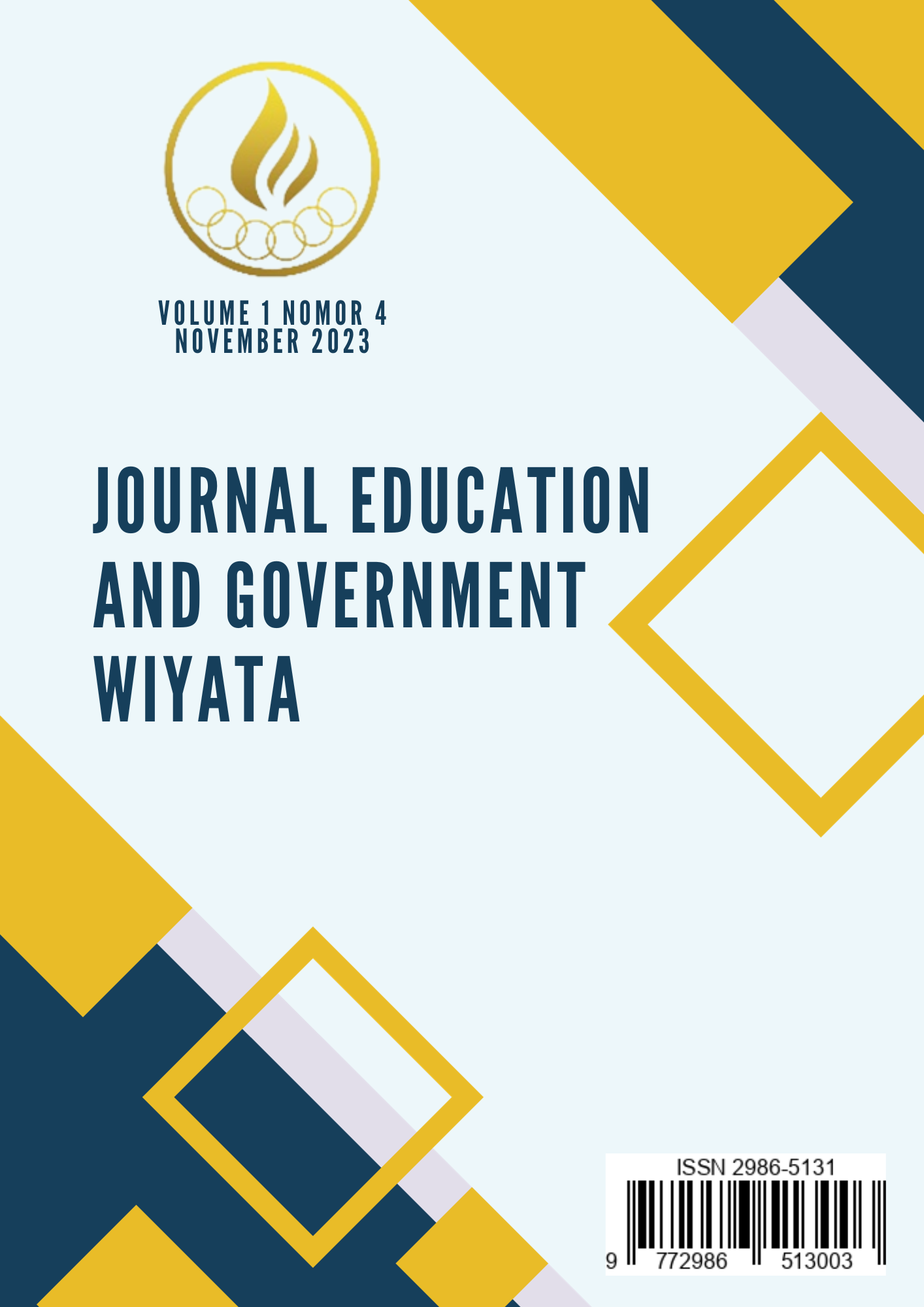AGRARIAN CONFLICT ANALYSIS: CHALLENGES AND SOCIAL IMPACT IN THE ARCHIPELAGO
DOI:
https://doi.org/10.71128/e-gov.v1i4.24Kata Kunci:
Dynamics, Agrarian, Government, conflictAbstrak
This article outlines the results of an in-depth analysis of agrarian conflicts in the archipelago, with a focus on the challenges faced and the social impacts they cause.
Agrarian conflict, which generally arises from disparities in control, perception and conception of natural resources, is investigated in the context of individuals, groups, communities and other related parties. The importance of understanding the social impacts of agrarian conflict on the communities involved is highlighted, including
economic losses, environmental damage, social tensions and human rights violations. Through analysis of the period of agrarian conflict eruption in 2014-2018, it was
revealed that land conflicts spread throughout Indonesia, with conflicts dominating in provinces such as Riau, North Sumatra and West Java. The factors that form the background of agrarian conflict are also explored, including aspects of land control, competition for natural resources, inequality, injustice and powerlessness in accessing factors and resources. In addition, the article discusses conflict resolution steps, including encouraging mechanisms for ideas such as social forestry and agrarian
reform, as well as conciliation, mediation and arbitration. The strengths and
weaknesses of agrarian conflicts are analyzed in depth, identifying the potential for
positive change in agrarian policy and increasing public awareness of land rights. However, violence, uncertainty and dependence on judicial institutions are also
recognized as weaknesses that need to be overcome. This article also explores the opportunities and threats associated with agrarian conflict, providing insight into how such conflict can trigger policy change and recognition of community tenure rights, but also has the potential to cause division and reduce government legitimacy. By understanding the dynamics of agrarian conflict and the government's key role in dealing with it, it is hoped that a just and sustainable solution can be found to achieve agrarian reform in the archipelago
Referensi
Rahma, Hernanda Ayudya Rizky, et al. "Kebijakan Reforma Konflik Hukum Politik Agraria di Era Pemerintahan Jokowi." Interaktif: Jurnal Ilmu-Ilmu Sosial 13.2 (2023): 33-40.
Nurdin, Iwan. Catatan Akhir Tahun 2015 Konsorsium Pembaruan Agraria: Reforma Agraria dan Penyelesaian Konflik Agraria Disandera Birokrasi. Consortium for Agrarian Reform, 2016.
Sinaga, Pidari. "Konflik Dan Reformasi Agraria Di Indonesia: Tantangan Dan Harapan." JOURNAL OF GOVERNMENT (Kajian Manajemen Pemerintahan dan Otonomi Daerah) 6.1 (2020): 57-73.
Yanto, Hery. "Garis Ideologi Agraria Di Era Presiden Joko Widodo." Simbur Cahaya 29.1 (2022): 81-96.
Alvian, Fitra, and Dian Aries Mujiburohman. "Implementasi Reforma Agraria Pada Era Pemerintahan Presiden Joko Widodo." Tunas Agraria 5.2 (2022): 111-126.
Rohman, Muhammad Luthfi, and Puji Astuti. "Access reform dalam program reforma agraria: studi kasus desa tahunan kecamatan tahunan Kabupaten Jepara." Journal of Politic and Government Studies 8.04 (2019): 381-390.
Wahyuddin, Wahyuddin, Abd Hasan, and Johan Rahmatullah. "Menelisik Komprehensifitas Kebijakan Hukum Reforma Agraria Di Indonesia:(Suatu Telaah Kritis Terhadap Perpres No. 86 Tahun 2018 Tentang Reforma Agraria)." Jurnal Kompilasi Hukum 6.2 (2021).
Unduhan
Diterbitkan
Cara Mengutip
Terbitan
Bagian
Lisensi
Hak Cipta (c) 2023 Shifa Zahratuni Salsabila

Artikel ini berlisensi Creative Commons Attribution-NonCommercial 4.0 International License.









:strip_icc():format(webp)/kly-media-production/medias/4550198/original/016488700_1692862388-cover.jpg)


